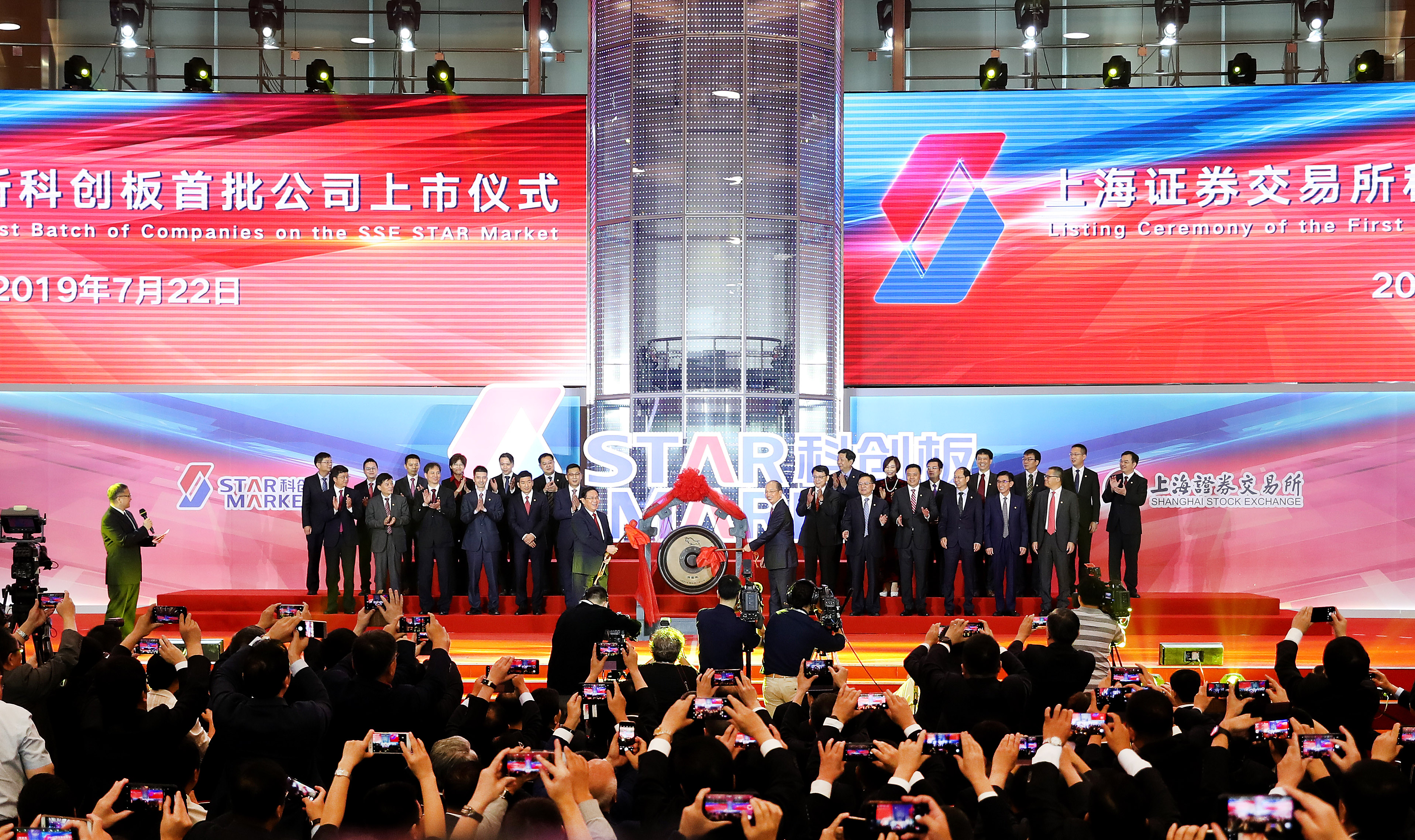
BEIJING, Nov. 6 (Xinhua) -- China's Nasdaq-style sci-tech innovation board, known as STAR Market, has raised 415.05 billion yuan (about 62.42 billion US dollars) for 191 listed companies as of Wednesday, with a total market value of these companies standing at 3.2 trillion yuan, according to the financial information provider Wind Info.
The STAR market, which was launched in June of 2019, eased restrictions for tech-savvy IPO candidates eyeing for fund-raising for further expansion and adopted the registration-based IPO system.
The STAR-listed companies mainly have businesses in the new generation of information technology industry, high-end equipment manufacturing, and the biopharmaceutical industry.
The companies on the STAR board recorded strong performance according to their financial statements. Despite the impact of the COVID-19 epidemic, 132 or 69.1 percent of enterprises on the board saw year-on-year growths in their revenues in the first three quarters.
These companies showed a firm commitment to promoting innovation, with 93 companies placing more than 10 percent of their revenues in research and development (R&D) during the period.
To better bolster the STAR companies, China has introduced a slew of measures specifically designed to give wings to the STAR market.
According to Dong Dengxin, a researcher with Wuhan University of Science and Technology, the launch of STAR board and the pilot registration-based IPO system have brought about many pioneering moves, such as allowing companies of a certain size to list before they have turned a profit, and expanding the daily fluctuation range of new board stocks up to 20 percent, compared with a 10 percent cap on the main board.
“The STAR market with its registration-based IPO system improved the inclusiveness of the domestic capital market for sci-tech innovation enterprises and provided equity support for scientific innovation. Thus, the country's capital market has become more open and inclusive, striving for a more legalized and globalized future,” said Dong.
(Edited by Li Shimeng, Hu Pingchao with Xinhua Silk Road, lishimeng@xinhua.org, hupingchao@xinhua.org)




 A single purchase
A single purchase









